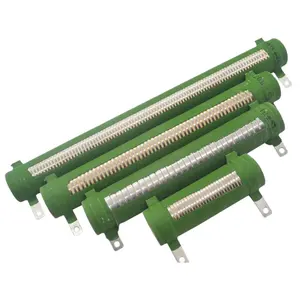
RX20 High Voltage Wire Wound Resistor 500 Ohm 100 Ohms Resister Fixed Resistance Brake/braking Resistors


Lorida Rx24 10 Ohm 5% Mili Ohmios Resistencia 25W 25R Wirewound Resistor





















Resistors are fundamental components in electronic circuits, and the 3 ohm resistor is a specific type that offers a resistance of three ohms to the flow of electrical current. This category of resistors is versatile, used in various applications from simple circuits to complex electronic devices.
The 3 ohm resistor comes in multiple forms, including surface mount and through-hole configurations. Surface mount resistors are designed for automated assembly processes, while through-hole resistors are better suited for prototyping or educational purposes where manual soldering is common.
These resistors serve in numerous roles, such as adjusting signal levels, dividing voltages, and can even be used in power control applications. Their utility in electronic design is vast, making them a staple in both commercial and educational electronics projects.
Resistors, including the 3 ohm resistor, are made from various materials such as carbon, metal film, and wirewound types, each offering distinct features. For instance, metal film resistors typically provide better temperature stability and accuracy than their carbon counterparts.
The advantage of using a 3 ohm resistor lies in its precision and reliability in circuit design. These resistors are essential for creating specific electrical characteristics in a circuit, which can be crucial for the functionality of an electronic device.
When selecting a 3 ohm resistor, it is important to consider factors such as tolerance, power rating, and temperature coefficient, which can significantly impact the resistor's performance in a given application.